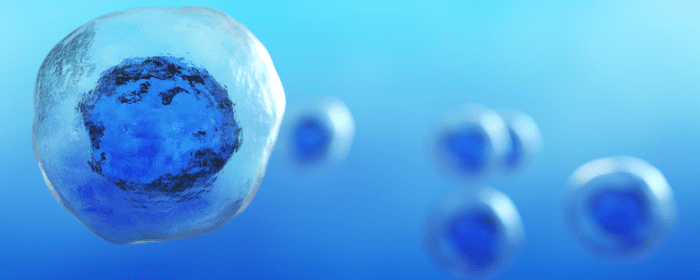Multiple system atrophy (MSA) is a rare, progressively degenerative neurological disorder that affects several of the central nervous system’s involuntary (autonomic) functions, including blood pressure, breathing, bladder function, and motor control.
Similar to Parkinson’s disease in both symptoms and progression, MSA has an average survival time of 7-9 years with no known treatment; the condition is generally characterized by slowed movement, rigidity of the muscles, and loss of balance.
With no effective medical treatment for MSA, current methods of treatment involve those known to reduce or manage symptoms and enhance care. However, with the rapid evolution of therapeutic treatments involving the use of stem cells, new research is exploring this application in the hopes of treating MSA and other degenerative diseases.
Stem cells and specifically adult neural, mesenchymal, and pluripotent stem cells are currently being researched in preclinical and clinical trials.
Examination of neural stem cells found in cerebral ventricles, the hippocampus, and within the striatum of the brain tissues, has revealed them to be self-renewing and have the potential to quickly differentiate. When studied in models using mice, neural stem cells were shown to mitigate into lesions of the brain, proliferate, and differentiate into three distinct types of nerve cells. Considering this, researchers believe neural stem cells to be the ideal donor cell for treating MSA. The biggest drawbacks associated with neural stem cells appear to be the difficulty associated with collecting them from the central nervous system.
Mesenchymal stem cells, or MSCs, found in bone marrow, umbilical cords, and adipose tissue are easy to obtain and have been demonstrated to be self-renewing and differentiate quickly. MSC animal models have also demonstrated improvement in Parkinson’s-associated symptoms, the ability to hinder immuno-inflammatory reactions, and the ability to improve overall cognitive ability – all without additional side effects.
Human umbilical cord blood, or hUCB-MNC, is also a known source of stem cells, and specifically mononuclear cells, which have been found to have high nerve regeneration functionality. In addition, hUCB-MNC are easy to collect, separate, and survive longer than other stem cells. When transplanted into the brain, animal studies have demonstrated hUCB-MNC’s ability to secrete nerve growth factors, repair damaged cells, and protect neurons. Other studies have shown that hUCB-MNC appears effective in treating a variety of nervous system diseases by reducing inflammation and regulating immunity within the central nervous system.
Regardless of the characteristics, benefits, and source of the various stem cells, the treatment appears to rely heavily on the method of transplantation for treating MSA. Specifically, successful transplantation relies on the stem cells’ ability to migrate to the CNS and integrate into tissues.
The lack of progress in developing successful treatment options for MSA has led to examining stem cells’ ability to self-replicate, self-renew, differentiate, and secrete neurotrophic factors as a potential treatment method for MSA and other related neurological diseases. As research evaluating the therapeutic benefits of stem cells progresses, the authors recommend continued monitoring of stem cell safety as well as the degree of survival and integration after transplantation into the human body.
Reference: 2018, October 5). Treatment of multiple system atrophy-the past, present and …. Retrieved January 12, 2021, from https://www.ncbi.nlm.nih.gov/pmc/articles/PMC6261842/


 St. Petersburg, Florida
St. Petersburg, Florida
